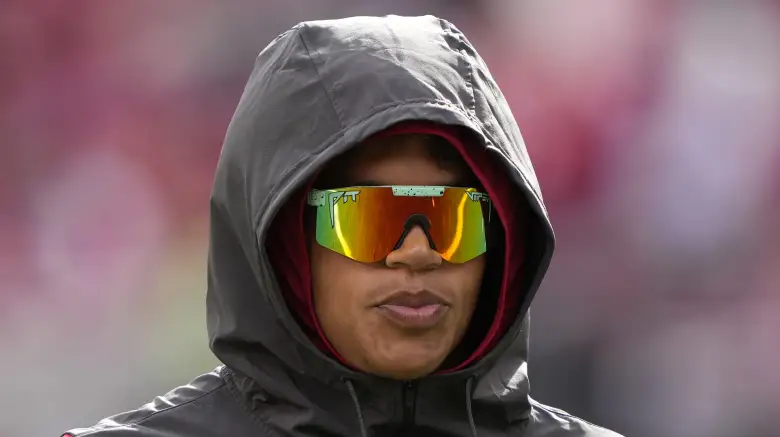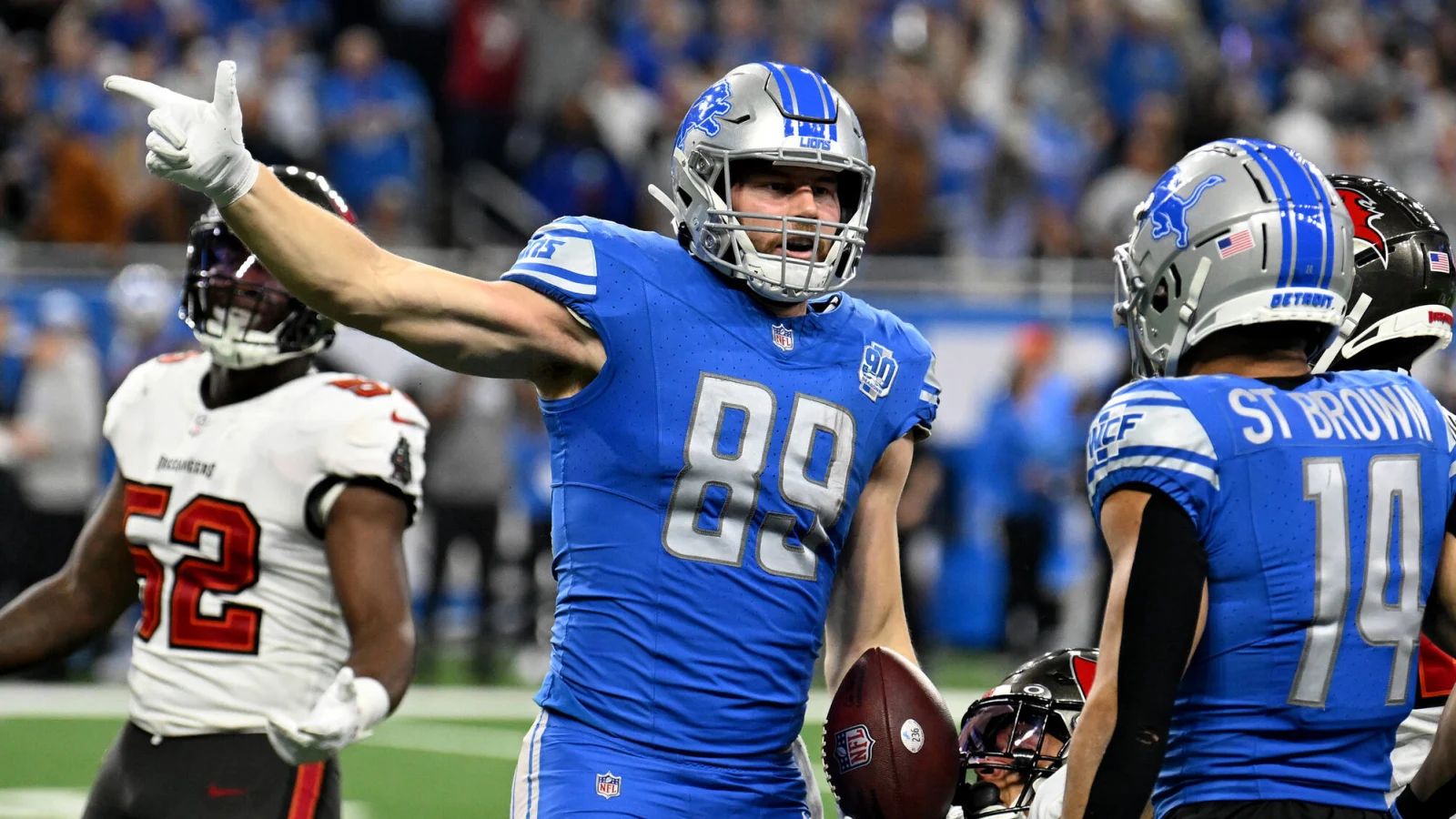As an organization, the Winnipeg Jets are deliberate in their decision-making. The choices they make, whether it’s extending star players like Connor Hellebuyck and Mark Scheifele or speaking to The Athletic’s Chris Johnston for an exclusive interview that paints a stark financial outlook, are carefully considered.
It’s not good news when it’s in the best interest of a team’s ownership group to speak on declining ticket sales. It is good news that Mark Chipman spoke to those issues so well, but that’s a consolation prize. The truth is that Winnipeg is catching up to this problem because it didn’t proactively plan to avoid it.

This is characterizing: Winnipeg punches above its weight as a franchise, but not because it’s the first to adapt or best at leading the cutting edge; the Jets succeed because, when they put their heads down and get to work on something, they do it well.
Sometimes, they’re a little bit late.
“We’ve had to reinvent ourselves,” Chipman told The Athletic in this exclusive. “For 10 years, we weren’t a sales organization; we were a service organization, and I’m not sure we were that good of a service organization, to be honest with you.”
This declaration shows awareness and insight, offering confidence that the Jets are taking a long look in the mirror about their role in their economic reality. It also lags behind fan perception by several years; whether in the comments section of articles or our end-of-season fan surveys, the concept of ownership taking fans for granted has been yesterday’s news since before the pandemic. A vocal minority has criticized the Jets for complacency since I began covering the team.
The well-documented problem is that the minority has grown, the sellout streak is history and Winnipeg is now reporting a 27 percent decrease in season ticket sales over the last three years, from 13,000 to under 9,500.
What happens next?
The people of Winnipeg know that it’s harder to shovel your way out of a snowstorm than a melt; the battle to re-establish a sustainable season-ticket base is likely much harder than it would have been to maintain one.
Chipman is working the phones now, speaking directly to former season-ticket holders about their qualms, and that’s vital. But sometimes, the reasons people give for their major financial and emotional decisions are not the same as the underlying concerns.
Where did things really go wrong? And how do the Jets win back their fans?
Winnipeg’s sellout streak spanned from the 2011 Jets 2.0 opener through Oct. 13, 2019, a 7-2 loss to Pittsburgh.
The timing here is instructive. Pandemic and recovery-from-pandemic economics must be taken into account in any clear-eyed analysis of a struggle to sell tickets. But they are not solely to blame. The Jets’ once-perfect season-ticket base had shown cracks prior to COVID-19, even if 32 sellouts in 36 home games in the pandemic-interrupted 2019-20 season does convey a significantly different economic reality for True North than the current landscape.
The pandemic has had a massive effect but other markets have recovered; Winnipeg has not. The Jets are selling the second-fewest tickets in the league to the tune of 87.4 percent capacity, the third-smallest rate in the league.
In 2023-24, the Jets have sold out Canada Life Centre four times — on Dec. 30, at 1 p.m. against the Minnesota Wild, on Jan. 11 against Chicago, likely with the expectation that Connor Bedard would be in the lineup, on Jan. 27 against Toronto, with heavy help from people in Maple Leafs jerseys, and recently on Feb. 10, with Sidney Crosby jerseys dotted throughout the concourse.

These circumstances are instructive. Winnipeg’s first sellout of the season was an afternoon game, held on a Saturday amid many people’s winter holidays, against a big hockey market within driving distance for the die-hards. Their other best-attended games were against superstars and supersized fan bases: Bedard, Crosby, the Maple Leafs and Connor McDavid’s Oilers.
Ticket sales have inched up throughout the season as people realize that the Jets are legitimately good. The on-ice product is solid, with brief spells of being great. But the takeaway is simple: In Winnipeg, tickets are largely purchased by people.
This is true everywhere, of course, but its implications are unique to Winnipeg. The Jets play in the smallest city, population-wise, of any NHL team and also sell fewer seats to corporate interests than other markets do. Ticket sales are more closely connected to the day-to-day economics of individuals, families and friend groups than in other markets. This makes the Jets uniquely vulnerable to public perception — and to economic swings.
To address this situation, the Jets are going to need two prongs of attack.
True North needs to generate more substantial, committed investment from corporate interests. To this end, True North has established a network of business leaders, meeting with them periodically, in an attempt to turn those leaders into stakeholders and advocates for a bigger corporate-driven season-ticket base. If the Jets can play this game and win it, they can better insulate themselves against the day-to-day economics of their die-hard fans.
The other, most important prong of Winnipeg’s approach must be prioritizing the individuals, families and friend groups who buy tickets. It’s an easy, obvious concept but it’s also easy to overlook when a team sells 13,500 season tickets in 17 minutes, as the Jets did in 2011. The goodwill behind the Jets’ return was enormous, but it wasn’t infinite. A lengthy season-ticket waitlist slowly dwindled, and then it ran out, and then the sellouts stopped.
The Athletic has spoken to a large number of fans who gave up on season tickets, asking what pushed them over the edge.
The single biggest complaint was about customer service. Fans cited frustrating interactions with customer service representatives, like unanswered emails or unmet requests. Another grievance was the price of transferring tickets from one member of a season-ticket-holding group to another. This was a surprisingly common request among fans who spoke with us — circumstances change, financially and otherwise, and sometimes fans simply move away from Winnipeg — but fans say they’re angry about being asked to pay “hundreds of dollars per seat” to make a switch.
It wouldn’t be fair to characterize an entire fan base’s experience by the frustrations of a small number of people. However, giving up on season tickets does require buying them in the first place. These aren’t the idle complaints of fans far away from Winnipeg’s marketing or purchasing funnel; they’re a small sample taken from a population whose loyalty was immediate upon the Jets’ return. Their perceptions, as conveyed to The Athletic, are that their loyalty was taken for granted.
It seems that these groups ask for more flexibility than is perhaps normal in other markets; it also seems that catering to them, instead of treating their requests as a burden, would be a uniquely Winnipeg solution to community building. What if Canada Life Centre was the easiest building in which to share or transfer season tickets, instead of charging additional fees?
Let’s take a moment to explore the connection between ticket sales and Winnipeg’s on-ice performance. Do ticket sales historically align with the quality of the team?
Winnipeg Jets Attendance
Season Points Percentage % Capacity
2011-12
0.512
100
2012-13
0.531
100
2013-14
0.512
100
2014-15
0.604
100
2015-16
0.476
100
2016-17
0.530
100
2017-18
0.695
100
2018-19
0.604
100
2019-20
0.563
108.2
2020-21
0.563
N/A
2021-22
0.543
84.8
2022-23
0.579
93.6
2023-24
0.703
87.4
The answer is no — not directly, at the very least. The correlation between points percentage and capacity is modest and it is negative. The building was full when the Jets weren’t good enough to make the playoffs and has dipped this season despite a first half that rivals the best in franchise history. It may be that this season’s excellence drives up ticket sales in the long run, but if that effect is coming then it is lagging behind the on-ice quality.
One interpretation is that the decision to pay money for hockey is more about believing in the club’s storyline than its quality. The people who bought into the original wave of season tickets were buying into a dream: hometown company makes good by bringing the NHL back to the biggest, friendliest small town in Canada. The building sold out for every game when the Jets were building toward their first playoff appearance in 2015 and — despite missing the postseason the next two years — fans trusted in the draft-and-develop process the team trumpeted.
It may be that a part of Winnipeg’s recent decline in attendance can be attributed to the lack of a clear storyline to believe in from Dustin Byfuglien’s departure through roughly the end of last season. Winnipeg struggled after Byfuglien took an indefinite leave of absence in 2019-20, while the plotline from that moment to now is more of a zig-zag than an inspiring trend.
There have been organizational missteps, too, like the video at the heart of 2023’s season-ticket drive.
It may have been meant to gently mention the stakes and celebrate the greater accomplishment of bringing the Jets back in the first place. Instead, it leaned hard enough on the first Jets’ departure to read like a threat and was received as such by fans.
In the time since that video was released, Chipman has spoken to multiple media outlets in an insightful, forthright manner. His honesty, particularly with Johnston here at The Athletic earlier this week, offers more hope than past mistakes. Meanwhile, GM Kevin Cheveldayoff has given interviews to multiple outlets, including The Athletic, that serve alongside Chipman’s transparency to boost the Jets’ public appeal. His most recent news conference made him sound as passionate and as relatable by way of his prairie roots as at any point in recent memory.
Chipman’s discussion of long-term sustainability is an important warning but, based on the club’s recent spending, it’s not an emergency alarm. The Jets have consistently spent to the cap (or close) from 2017-18 to now; even this season, with revenue loss from unsold tickets clocking in at an estimated $4.5 million, Winnipeg has spent big money in an attempt to win big.
From a team-building perspective, there have been times when Cheveldayoff took credit for Winnipeg’s successes while blaming outside factors for the struggles. It felt disconnected when he attempted to describe Paul Stastny’s declaration that the Jets weren’t playing for each other as the stuff of normal, natural frustrations. But it’s hard to argue against the work done since the Andrew Copp trade in 2022.
In October, the Jets signed Hellebuyck and Scheifele, two homegrown stars, to long-term extensions. Cheveldayoff’s work at the 2023 trade deadline and again in the PL Dubois trade yielded Nino Niederreiter, Vladislav Namestnikov, Gabriel Vilardi, Alex Iafallo and Rasmus Kupari — big pieces of the team’s on-ice success. This season, he’s extended Niederreiter and acquired Sean Monahan from Montreal. All of this makes Winnipeg a competitive team while increasing the Jets’ appeal when it comes to retaining their next group of pending free agents.
So what comes next? Will a quality team, bolstered by ownership and management doing an improved job of public relations (and another year’s distance from the pandemic) lead to a long-term increase in attendance?
The Jets need to build on this great start (on and off the ice) with playoff success — and the revenue that comes with it — and positive storylines heading into the offseason. An increase in purchasing season tickets seems realistic and attainable but not remotely guaranteed. The economic climate is more challenging for more people than it was before 2020.
The big fear is that the Jets are destined for the same fate Winnipeg’s original NHL franchise met in 1996. That seems unlikely. The club has a wealthy ownership group, even by NHL standards, continues to push for a playoff-caliber team and hasn’t slashed its spending. Meanwhile, Chipman’s earnest approach is more than good PR; it appears to signal a willingness to attack the problem from its roots.
NHL commissioner Gary Bettman will be at Canada Life Centre on Tuesday, joining Chipman before Winnipeg’s game against St. Louis for what the Jets are calling a fireside chat, and fans have been asked to submit questions for the event. The visit is not unusual — Bettman visits each market once per year — but the circumstances are obviously unique. The tack that he and Chipman take could go a long way toward calming fans’ unease or stoking the flames.





